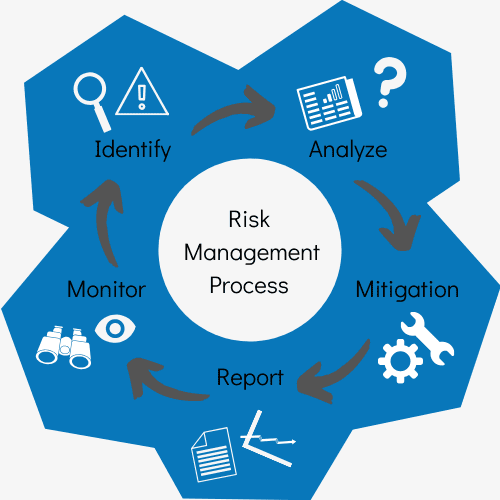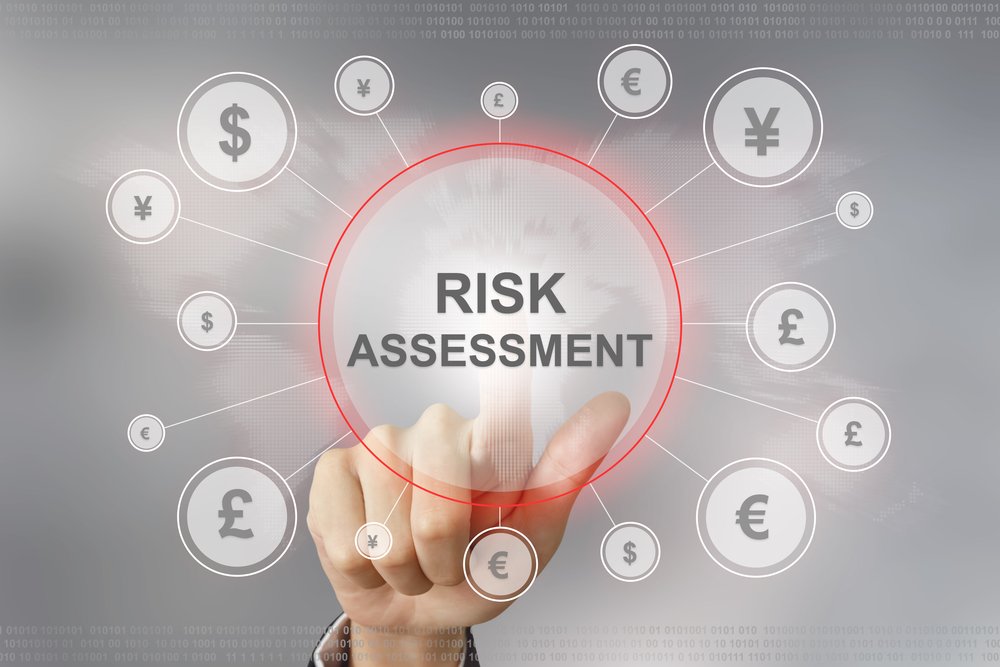A Thorough Guide to Understanding the Importance of Risk Management
The Critical Importance of Risk Management in Achieving Organizational Objectives
In the rapidly advancing company landscape, the capability to navigate unpredictability has actually come to be an imperative. This is where Risk Management actions in, providing a structured technique to determining, evaluating, and mitigating possible barricades to progress. It's greater than just a safety step - it's a critical device, cultivating resilience and advancement. As we discover the vital role of Risk Management in achieving business goals, one can not wonder however aid: exactly how does this translate into real-world success?
Understanding the Principle of Risk Management in Service

The Indispensable Role of Risk Management in Strategic Planning
Incorporating Risk Management right into critical planning works as a protect for companies, securing their long-term strategies with a strong structure of preparedness and strength. It runs as the organization's radar, detecting prospective hazards and susceptabilities that might disrupt the course in the direction of achieving their stated goals. Risk Management offers a framework for expecting unpredictabilities and designing ideal responses, guaranteeing the company's survival and success also despite misfortune. By incorporating Risk Management right into strategic planning, companies can transform these unpredictabilities right into possibilities for development and technology. This strategic interweaving of Risk Management promotes versatility, making companies much more durable and allowing them to browse the ever-changing organization landscape with confidence. Subsequently, Risk Management comes to be a vital tool in tactical planning, crucial in securing lasting success.

Methods for Identifying, Assessing, and Focusing On Threats
Browsing the complex landscape of risks needs the application of specific strategies for their assessment, identification, and prioritization. The procedure starts with Risk recognition, employing tools such as SWOT evaluation, which aids in identifying possible dangers and opportunities. Next off, Risk analysis is conducted to establish the prospective effect and chance of each Risk. Devices such as Risk matrices and impact-probability graphes are made use of for this. Threats are prioritized based on their potential impact and likelihood, allowing companies to concentrate their sources on high-priority threats. This organized approach guarantees a thorough understanding of the Risk landscape, allowing organizations to make informed choices and effectively take care of threats to attain their objectives - importance of risk management.
Safeguarding Organizational Operations Via Efficient Risk Management
In business landscape stuffed with unpredictabilities, reliable Risk Management plays a pivotal function in protecting organizational procedures. It works as a protective shield, alleviating the adverse effects of possible dangers and ensuring the smooth functioning of all procedures. By recognizing and analyzing potential hazards, Risk Management makes it possible for organizations to develop durable backup strategies. This preventive approach aids in keeping operational security, also when faced with unforeseen scenarios. Fundamentally, Risk Management is the lifeline that keeps the organizational operations afloat among turbulent waters. It makes certain not just the survival yet the sustainable growth of an organization, making it a vital device in achieving business purposes. Companies should invest in look at these guys detailed Risk Management techniques to protect their procedures.

Converting Possible Risks to Opportunities: The Power of Risk Management
While possible threats may initially appear as barricades to organizational success, efficient Risk Management can transform them into chances. A positive approach to run the risk of Management involves recognizing, assessing, and focusing on threats to create techniques that transform them into potential advantages. This process demands the development of a risk-aware society within the company, motivating people to check out dangers as prospective catalysts for modification and growth, rather than simple risks. importance of risk management. Via this lens, possible dangers come to be opportunities to introduce, enhance processes, and strengthen durability. Thus, by leveraging the power of Risk Management, organizations can not just secure their procedures yet also spur growth and achieve their goals in an unforeseeable organization atmosphere.
Case Studies: Success Stories of Risk Management Driving Business Objectives
Effective execution of Risk Management methods has actually generated excellent results click to find out more in numerous companies, emphasizing the values of this technique. Multinational companies like Microsoft and Google, for instance, have leveraged Risk Management to decrease hazards and make use of possibilities, driving their company purposes forward. These instances illustrate just how successful Risk Management can not just guide services clear of possible pitfalls yet additionally direct them in the direction of their critical purposes.
Conclusion
In verdict, Risk Management is basically crucial in attaining business goals. By integrating Risk Management right into calculated preparation, organizations can much better navigate unpredictabilities, protect procedures, and capitalise on opportunities, therefore lining up with long-term purposes.
At its core, Risk Management is the procedure of identifying, assessing, and dealing with possible risks that might adversely affect a company's objectives or operations. Next, Risk evaluation is carried out to determine the potential effect and chance of each Risk. Threats are prioritized based on their prospective effect and chance, allowing organizations to focus their sources on critical threats. By recognizing and analyzing click here for info potential dangers, Risk Management enables organizations to develop robust contingency plans. A positive strategy to run the risk of Management entails determining, analyzing, and prioritizing risks to create approaches that transform them right into prospective benefits.